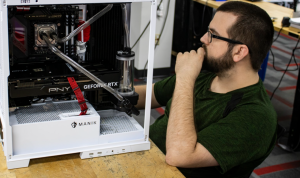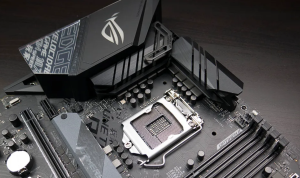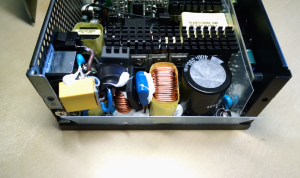Common Hardware Issues and How to Troubleshoot Them is a topic that resonates with anyone who uses technology daily. Understanding the common problems that can arise with hardware not only saves time but also helps prevent frustration when devices fail. From malfunctioning keyboards to unresponsive mice, knowing how to address these issues is essential for seamless computing.
The process of troubleshooting hardware issues can seem daunting at times, but with a little knowledge and patience, many problems can be solved efficiently. This exploration will cover the typical hardware challenges users face and provide practical steps for resolving these issues, ensuring that you can keep your technology running smoothly.
In today’s fast-paced world, the need for effective communication has never been more evident. As we navigate through our daily lives, both personally and professionally, the ability to convey our thoughts and ideas clearly plays a crucial role in fostering relationships, understanding, and collaboration. Whether you’re drafting an email, presenting a project, or engaging in casual conversation, mastering the art of communication can significantly impact outcomes.### The Importance of Effective CommunicationEffective communication serves as the foundation for successful interactions.
It is not just about exchanging information; it’s also about understanding the emotions and intentions behind the information. When we communicate effectively, we create an environment of trust and respect, which is essential in both personal and professional settings. In the workplace, effective communication can lead to higher employee engagement, improved teamwork, and increased productivity. When team members feel heard and understood, they are more likely to contribute their ideas and feedback, leading to better decision-making and innovation.
On a personal level, clear communication helps to build stronger relationships. It allows individuals to express their needs and feelings, paving the way for deeper connections.### The Elements of Effective CommunicationThere are several key elements that contribute to effective communication. Understanding these components can help you enhance your communication skills. 1. Clarity and Conciseness Clear and concise communication is essential. When your message is straightforward and to the point, it reduces the chances of misunderstandings.
Avoid jargon and technical language that may confuse the listener. Instead, strive to use simple language that conveys your message effectively. 2. Active Listening Active listening is a critical component of effective communication. It involves fully concentrating on the speaker, understanding their message, responding thoughtfully, and remembering what was said. By practicing active listening, you demonstrate respect for the speaker and encourage open dialogue.
3. Non-verbal Communication Non-verbal cues, such as body language, facial expressions, and tone of voice, play a significant role in communication. Being aware of your non-verbal signals can enhance your message and convey sincerity. Similarly, paying attention to others’ non-verbal cues can provide valuable insights into their feelings and reactions. 4. Empathy Empathy is the ability to understand and share the feelings of another person.
By approaching conversations with empathy, you can create a safe space for open communication. This involves being sensitive to the emotions of others and responding appropriately, which can strengthen your relationships and foster goodwill.### Tips for Enhancing Your Communication SkillsImproving your communication skills is a continuous process. Here are some practical tips to help you become a more effective communicator: 1. Practice Regularly The more you practice, the better you become.
Engage in conversations, participate in discussions, and seek opportunities to present your ideas. The key is to put yourself out there and learn from the experience. 2. Seek Feedback Don’t hesitate to ask for feedback on your communication style. Constructive criticism can provide valuable insights that help you identify areas for improvement. Whether from friends, colleagues, or mentors, feedback can be a powerful tool for growth.
3. Read Widely Reading not only expands your knowledge but also exposes you to different communication styles. It can improve your vocabulary, enhance your understanding of language nuances, and inspire you to adopt new ways of expressing yourself. 4. Utilize Technology In today’s digital age, technology offers numerous tools for enhancing communication. Use applications for video conferencing, instant messaging, and collaborative platforms to facilitate seamless interactions, especially in remote settings.
5. Be Mindful of Cultural Differences In our globalized world, it’s essential to be aware of cultural differences in communication styles. What may be considered acceptable in one culture might be perceived differently in another. Being culturally sensitive can enhance your effectiveness in diverse environments.### Overcoming Communication BarriersWhile effective communication is vital, various barriers can impede understanding. Recognizing these barriers can help you address them proactively.
1. Language Differences Language can be a significant barrier, especially in multicultural settings. To overcome this, strive to use clear language, and be patient. Encourage questions and clarify any misunderstandings that may arise. 2. Emotional Barriers Emotions can cloud judgment and impact how we communicate. If you are feeling stressed or upset, it may be challenging to express yourself clearly.
Take a moment to calm yourself before engaging in important conversations. 3. Physical Barriers Physical distance, such as remote working conditions, can hinder communication. Utilize technology to bridge this gap. Video calls, emails, and messaging apps can facilitate smooth communication, regardless of location. 4. Perceptual Barriers Different perceptions can lead to misunderstandings.
It’s crucial to recognize that everyone views situations through their unique lens. Encourage open dialogue where individuals can express their perspectives and seek clarification when needed.### ConclusionIn conclusion, effective communication is an invaluable skill that can positively influence both personal and professional interactions. By focusing on clarity, active listening, non-verbal cues, and empathy, you can enhance your communication skills and foster meaningful connections.
Remember to practice regularly, seek feedback, and remain mindful of communication barriers. With dedication and effort, you can become a more effective communicator, capable of navigating any conversation with confidence and ease.Effective communication isn’t just a skill; it’s an art. The more you invest in honing this craft, the more rewarding your interactions will be. Whether you’re aiming to build stronger relationships, collaborate effectively at work, or simply express yourself more clearly, embracing the principles of effective communication can lead to remarkable transformations in your life.

So, go ahead and start implementing these strategies today, and watch as your communication skills flourish.





